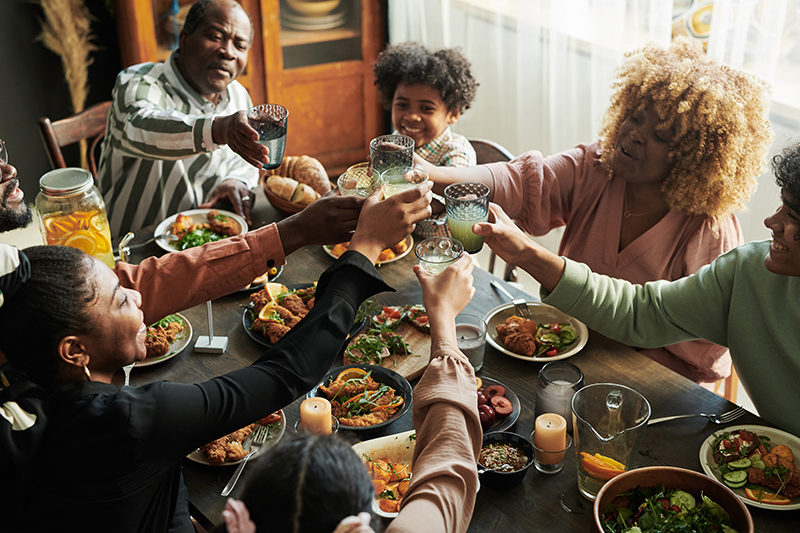
Safe Dining Makes for a Happier and Healthier Holiday Season
As the holiday season approaches, Harris County Public Health would like to remind families that foodborne illnesses can spoil any occasion. Holiday traditions revolve around family time and delicious meals. Still, it's essential to be aware of food safety to prevent foodborne illnesses that can ruin festivities.
The Centers for Disease Control and Prevention (CDC) reports that foodborne illness affects 48 million (or 1 out of every 6) people in the United States annually. Foodborne illness, or food poisoning, can cause various symptoms, including nausea, vomiting, diarrhea, and fever. In severe cases, it can lead to hospitalization or even death. Multiple factors, such as improper food handling, preparation, and storage, can cause these illnesses.
“We know that preparing large home-cooked meals for families and friends is popular at this time of the year. Because of this, it is important for meal preparers at home to follow a few basic rules to prevent themselves and others from getting sick during the holidays,” said HPCH’s Environmental Public Health (EPH) Division Director Scott Jeansonne, whose division provides food safety management training and routine inspection for local food establishments.
Below are a few simple food safety tips recommended by the CDC:
Separate: Keep raw and cooked foods separate. Cross-contamination can occur when harmful bacteria from one food are transferred to another. To prevent cross-contamination, keep raw meat, poultry, seafood, and eggs separate from other foods during preparation and storage.
Cook: Cook food thoroughly to the right temperature. Use a food thermometer to ensure that meat, poultry, and seafood are cooked to a safe internal temperature. For meat and poultry, the safe internal temperature is 165°F (74°C). For seafood, the safe internal temperature is 145°F (63°C).
Chill: Refrigerate food promptly to prevent bacteria from multiplying. Bacteria can grow rapidly between 40°F (4°C) and 140°F (60°C). This temperature range is known as the "danger zone." To keep food safe, refrigerate or freeze perishable foods within two hours of cooking or serving (one hour if the temperature is above 90°F (32°C)). Thaw frozen food safely in the refrigerator, in cold water, or in the microwave; never thaw food at room temperature.
For more information on food safety, visit hcphtx.org/EPH. To report food poisoning from a food establishment, visit hcphtx.org/FoodBug or call 713-274-6300.


